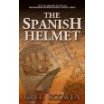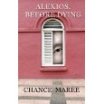http://www.amazon.com/Spanish-Helmet-Matthew-Cameron-ebook/dp/B00537SKMA
Scowen has created a very exciting story from the mix of “evidence”, hypothesis, and hyperbole that is the history of New Zealand before 1769. The alternating chapters of possible 16th Century Spanish discovery and an equally plausible present day story are knitted together very well. As with history everywhere, the most easily accessible “truths” come from amongst the records of the victorious and not from those of the defeated. Taking this factor into account this fiction builds a believable plot.
I loved the way Scowen blended together the “known” and the theoretical in creating this realistically paced thriller. He wasted little of his wide cultural experiences either, as he even weaves in some recently acquired knowledge of Switzerland.
I include here a paragraph of background to help those unfamiliar with New Zealand gain a feel for this book’s foundations. I would be distressed by the opinion that any of this is anywhere near being a spoiler. There were quite possibly some “fair-skinned tribes” in NZ before “discovery” by the Dutch and English. There are all sorts of diverse and variably weak bits of real evidence for such a theory. Timelines are very unclear. This is unsurprising considering that so much of what we do know comes from the oral histories of the Maori, and from a strange mix of singularly inconsequential archaeological inconsistencies and theories. However, Scowen has used a nice mix of what I assume are genuine, though perhaps minority, Maori tribal memories and the thin presently available archaeological evidence to great effect. That in this temperate zone of the southern hemisphere there were “fair” skinned peoples long before the arrival of Europeans seems biologically unsurprising. There is also a probability that a few Europeans arrived well before 18th and 19th Century waves of modern Pakeha. Possibly there were enough whites to have given rise to a small fairer-skinned assimilated population. I was pleased to have this information prior to reading the book, as I’m sure it only added to my rapid immersion in the story.
The mixed bonds and frictions within close and tribal families provide the glue to many aspects of the plot. There is plenty of love, hate and drama to add spice to history and archaeological intrigue. Good, bad and variously flawed individuals experience all the classic ingredients of love, sexual tension, and violence, turning this mix of historical and contemporary fiction into a great read.
The possible voyage of the real San Lesmes and the main character’s modern fictional tour of New Zealand may almost have been designed to give NZ Tourism a boost. Scowen’s book is very readable. Without a series of inevitable distractions I would have had no trouble in finishing The Spanish Helmet in one read. I look forward to his next book.




